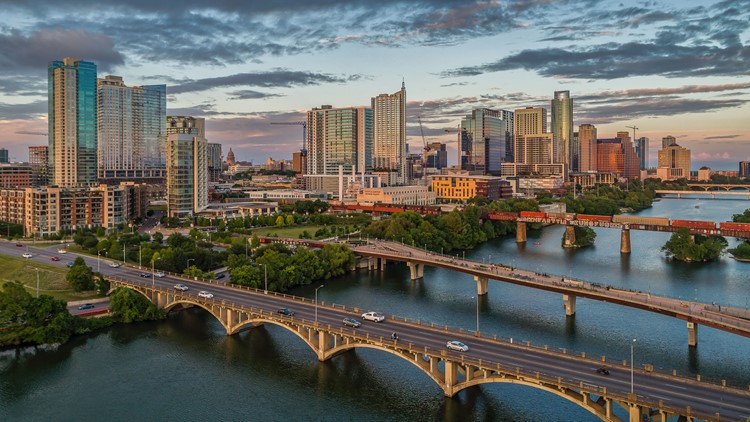AUSTIN, Texas — Austin will be the first major Texas city to use local tax dollars to give cash to low-income families to keep them housed as the cost of living skyrockets in the capital city.
Under a yearlong, $1 million pilot program that cleared a key Austin City Council vote Thursday, the city will send monthly checks of $1,000 to 85 needy households at risk of losing their homes — an attempt to insulate low-income residents from Austin’s increasingly expensive housing market and prevent more people from becoming homeless.
“We can find people moments before they end up on our streets that prevent them, divert them from being there,” Mayor Steve Adler said at a press conference Thursday morning. “That would be not only wonderful for them, it would be wise and smart for the taxpayers in the city of Austin because it will be a lot less expensive to divert someone from homelessness than to help them find a home once they’re on our streets.”
Eight Austin City Council members voted Thursday to establish the “guaranteed income” pilot program and contract with a California nonprofit to run it.
Austin joins at least 28 U.S. cities, like Los Angeles, Chicago and Pittsburgh, that have tried some form of guaranteed income. Locally, the idea came out of efforts to rework how the city tackles public safety in the wake of protests over police brutality in 2020.
Other Texas metro areas have experimented with guaranteed income programs during the pandemic. Programs in San Antonio and El Paso County have sent regular payments to low-income households using a combination of federal stimulus dollars and charitable contributions. Austin is believed to have the only program fully funded by local taxpayers.
Austin officials are working out how exactly the program will work and which families will receive the money. Austinites who qualify won’t have restrictions on how they can spend the money — but the idea is that they’ll use it to pay household costs like rent, utilities, transportation and groceries.
City officials have floated some possibilities regarding who should qualify for help: residents who have an eviction case filed against them or have trouble paying their utility bills, as well as people already experiencing homelessness.
Ahead of Thursday’s vote, some council members voiced concerns about the relative lack of details about the program and questioned whether it was a good idea for Austin to use local tax dollars to fund the program, rather than letting the federal government or nonprofits take the lead.
“I believe that we do need to invest in people and their basic needs, but I’m not sure that this is the right way today,” council member Alison Alter said at Thursday’s meeting before voting against the measure.
Brion Oaks, the city’s chief equity officer, told city officials in a memo that the Urban Institute, a nonprofit think tank based in Washington, D.C., will help measure the program’s impact by looking at factors like participants’ financial stability, stress levels and overall wellness over the course of receiving the funds.
RELATED: HAR: Only 47% of households make enough money to afford a single-family home in Houston in 2022
Preliminary findings from a similar pilot program showed some promising results. UpTogether, the California nonprofit that will run the Austin program, ran a separate guaranteed income program funded by private dollars in Austin and Georgetown that ended in March, the nonprofit said in a statement Thursday. That program gave 173 families $1,000 a month for a year, and the nonprofit said participants used the money for expenses like rent and mortgage payments, child care, fuel and groceries.
Some were able to boost their savings, more than half of recipients slashed their debt by 75% and more than a third eliminated their household debt, the nonprofit said.
According to Austin’s Ending Community Homelessness Coalition, the city has more than 3,100 people experiencing homelessness. A local ban on most evictions during the pandemic kept the number of eviction case fillings low compared with other major Texas cities, but that number has exploded since the ban ended last year.
Guaranteed income may be one way to put a dent in those problems, proponents said.
“This is about preventing displacement, preventing eviction and ensuring that our families are able to stay in their home, that we have that stability,” council member Vanessa Fuentes said.
This story comes from our KHOU 11 News partners at The Texas Tribune, a nonprofit, nonpartisan media organization that informs Texans - and engages with them - about public policy, politics, government, and statewide issues.



